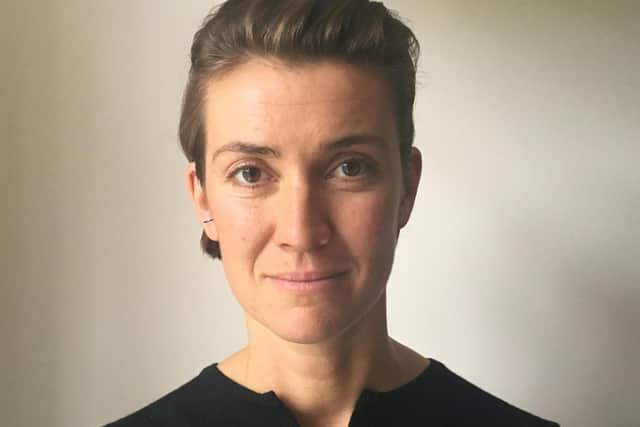Outdoor therapy helping young people and veterans to reconnect - Katarina Horrox and Mark Rae
Inversely, research shows that when we are stressed or anxious we become withdrawn and fearful, experiencing less compassion towards ourselves and others. The world can become a frightening place where we anticipate mistreatment. This can create a perpetuating stressful feedback cycle on a neurobiological level.
This is because our responses to safe and unsafe situations are “wired” into us, starting in early infancy. Our experiences shape our neurobiology, which has an impact on how we respond to stressful situations later in life.
Advertisement
Hide AdAdvertisement
Hide AdHowever, research increasingly shows that our responses can be "re-wired”. The brain has the plasticity to develop and strengthen neural pathways to support us to manage difficult experiences.


At Venture Trust, we have developed an Outdoor Therapy Service to support young people (aged 16-25) and Veterans in Scotland. This service combines psychotherapy with time in natural environments, on occasion leaning on practices of meditation or mindfulness. The practices combined in the service have all been demonstrated to have a beneficial impact on our capacity to process difficult experiences, as well as develop helpful experiences.
Psychotherapy helps people to develop compassion and generosity for self and others and helps strengthen neural pathways to regulate stress and anxiety. Time in natural environments lowers blood pressure and stress hormone levels, reduces nervous system arousal, enhances immune system functioning, increases self-esteem and reduces anxiety.
Meditation and mindfulness practices lower stress, decrease inflammation and increases self-regulation and empathy towards self and others.
Research exploring the benefits of providing therapy outdoors is encouraging. And our experience within the service has shown us the benefits of working safely and ethically in natural environments.
Many of the clients referred to us have suffered extreme adversity, trauma, and poverty. We have learnt from a combination of clinical experience, research and client feedback that providing therapy outdoors is offering a valuable therapeutic service.
Feedback from clients has highlighted that psychotherapy within an outdoor natural environment can feel easier to access or engage with than therapy in a traditional clinical setting. Clients also value being in and with nature. We would suggest that this may be true for many people.
In our service, we have had the privilege of working with a variety of clients. We have seen veterans with complex PTSD engaging in therapy and developing coping strategies that have allowed them to re-engage with their families and communities, thus reducing isolation and loneliness.
Advertisement
Hide AdAdvertisement
Hide AdWe have also seen young people with poor mental health, some at high risk of offending, who have built trusted therapeutic alliances. Through hard work and greater resilience, they have moved from insecure temporary accommodation into managing their own tenancies and gaining employment or returning to their studies.
To summarise, in combining psychotherapy with natural environments, clients are supported to improve their mental and emotional health. Taking therapy outdoors connects people to a resource that is always available to them, and provides an opportunity to re-connect with themselves.
We hope to see outdoor therapy practices researched more broadly and policy developed that recognises the value of adopting this meaningful therapeutic practice.
For more information please visit: www.venturetrust.org.uk/programmes/outdoor-therapy
Katarina Horrox, Clinical Manager and Mark Rae, Area Hub Manager, Venture Trust
Comments
Want to join the conversation? Please or to comment on this article.